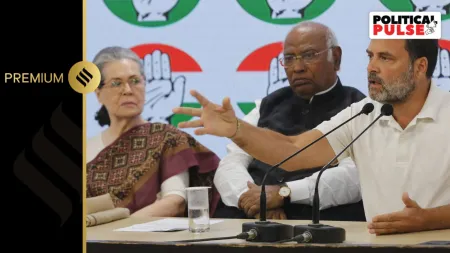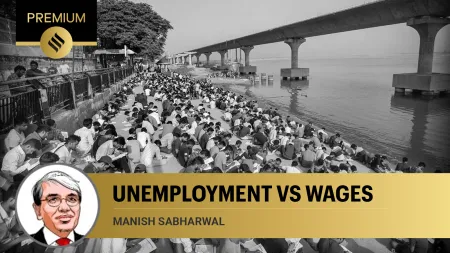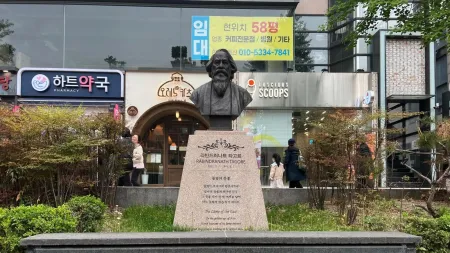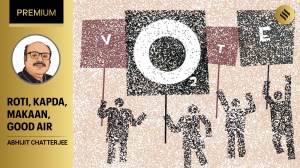- India
- International
Merger of Sebi and FMC: What it means for market, players
The Forward Contracts Regulation Act (FCRA) stands repealed, and the regulation of the commodity derivatives market shifts to Sebi under the Securities Contracts Regulation Act (SCRA), 1956.
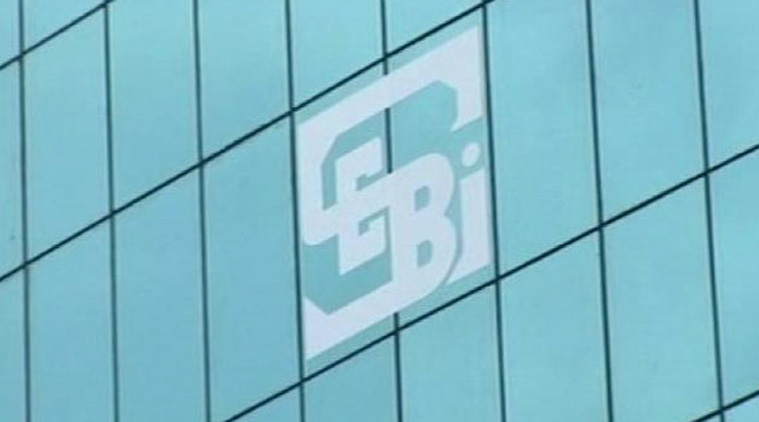 Market players feel that commodity markets will now be better regulated, with more stringent processes — and will thus evoke greater confidence.
Market players feel that commodity markets will now be better regulated, with more stringent processes — and will thus evoke greater confidence.
A little over two years after Jignesh Shah and Financial Technologies promoted National Spot Exchange Limited (NSEL) suspended trading of all its contracts, resulting in a payments crisis amounting to over Rs 5,600 crore that still remains unresolved, the Forwards Market Commission, the commodities market regulator, was merged with the Securities and Exchange Board of India on Monday. Finance Minister Arun Jaitley, who had proposed the merger in his Budget speech in February, said, “Markets thrive on confidence and integrity. These are crucial times for India, we can’t afford throwing away the opportunity presented by the advantages.” This is what the merger means for investors and market participants.
What does the merger mean?
The Forward Contracts Regulation Act (FCRA) stands repealed, and the regulation of the commodity derivatives market shifts to Sebi under the Securities Contracts Regulation Act (SCRA), 1956. SCRA is a stronger law, and gives more powers to Sebi than FCRA offered to FMC. Market players feel that commodity markets will now be better regulated, with more stringent processes — and will thus evoke greater confidence.
[related-post]
Why is Sebi seen to be better equipped to monitor commodities trading?
The FMC only regulated the exchanges, and had no direct control over brokers. Also, Sebi has a far superior surveillance, risk-monitoring and enforcement mechanism that market participants say will give more confidence to investors, and may help businesses grow. Among other powers, Sebi now also has the power to access call data records.
How can Sebi expand the scope of commodity trading?
While foreign institutional investors are allowed to invest in Indian equities and debt markets, they are currently restricted from participating in commodities trading at exchanges. According to sources, Sebi may allow FII participation in commodities trading going forward, which would provide more depth to the markets, and increase liquidity, investor participation and better price discovery. Brokers also feel Sebi may introduce option contracts (call and put options) in commodities trading, thereby providing better hedging tools to investors. Sebi has said that it will oversee price determination of commodities. “Price discovery has been a major issue in commodities trading, and if the regulator addresses that concern, it will be a big confidence-booster for participants,” said Sugandha Sachdev of Religare Commodities.
Who proposed the merger?

The NSEL episode underlined the need for a better and stronger regulator to safeguard investor interest and restore confidence. The Financial Sector Legislative Reforms Commission (FSLRC) had earlier stressed on the need to move away from sector-wise regulation. It proposed a system in which RBI would regulate the banking and payments system, and a Unified Financial Agency (UFA) would subsume all other financial sector regulators such as SEBI, IRDA, PFRDA and FMC, to regulate the rest of the financial markets.
What challenges could Sebi face?
Sebi has all necessary infrastructure to regulate the commodities market, but some feel it lacks knowledge of the commodities market. However, since several FMC officials will move to Sebi in line with the merger, such issues are likely to be sorted out.
More Explained
EXPRESS OPINION
May 09: Latest News
- 01
- 02
- 03
- 04
- 05


